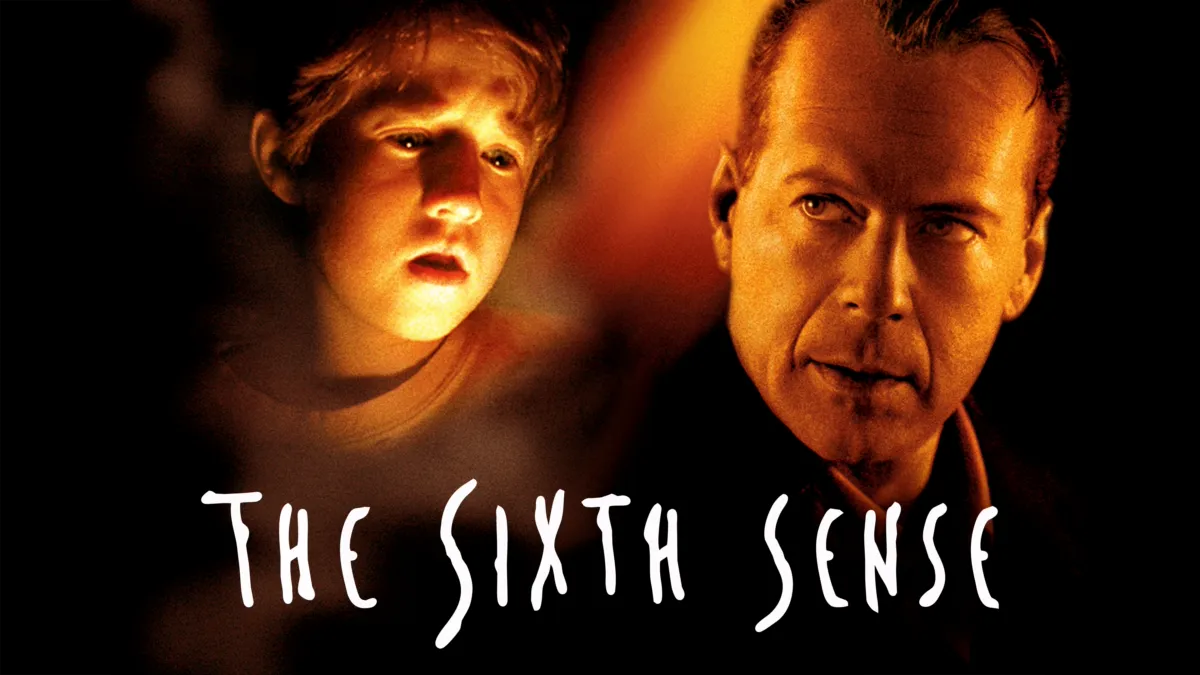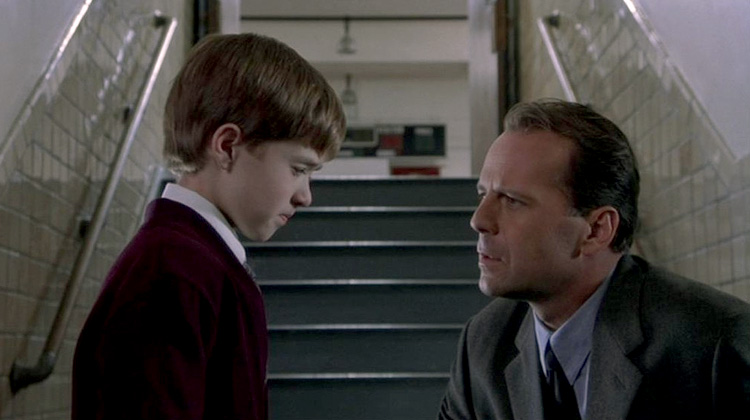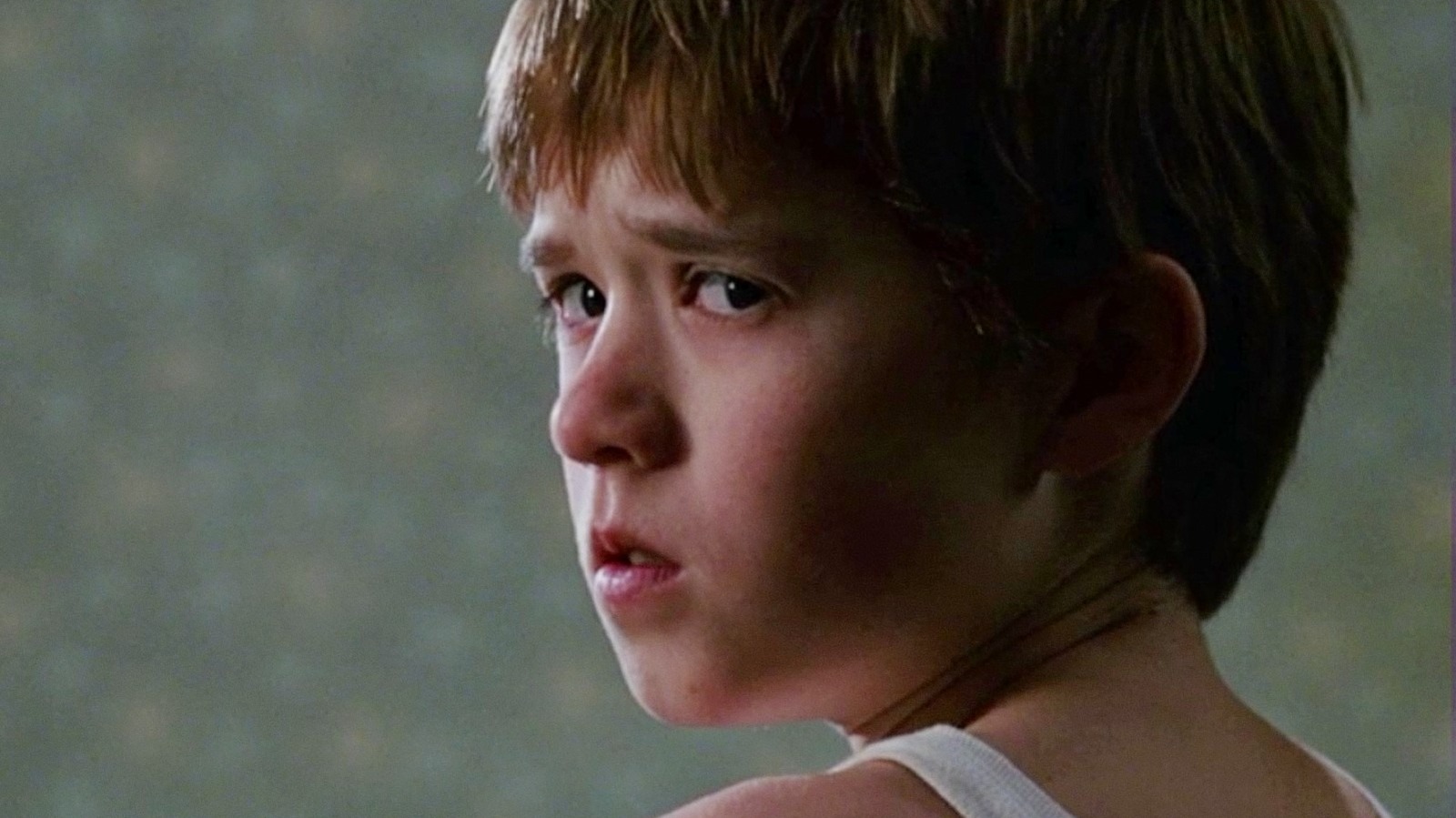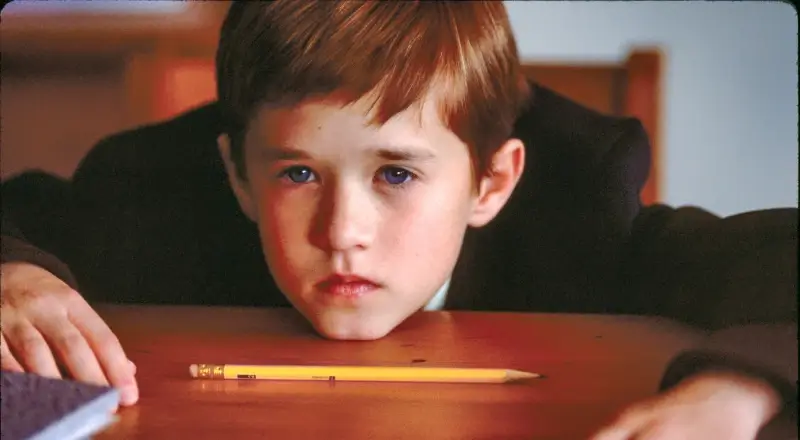The twist in The Sixth Sense reveals a groundbreaking truth that changes how we view the entire story. Dr. Malcolm Crowe (Bruce Willis), who has been working with young Cole (Haley Joel Osment) throughout the film, comes to the sensationalist realization that he has been a ghost all along. This revelation transforms their relationship and offers a deeper, more emotional understanding of their shared journey. By the end, both Malcolm and Cole have achieved peace, helping each other confront their struggles and find solace in their connection to the spirit world.
The Sixth Sense Ending Explained
At the start of The Sixth Sense, Malcolm is a psychologist helping Cole, a troubled young boy who claims to see dead people. At the same time, Malcolm is dealing with his own struggles—his guilt over the death of a former patient, Vincent Grey (Donnie Wahlberg), and the unraveling of his marriage to Anna (Olivia Williams). As Malcolm continues to guide Cole, he seeks to repair his personal life and understand the mysteries surrounding Cole’s visions. The two characters seem to be forming a bond, with Malcolm trying to help Cole live a more fulfilled life. However, the deeper twist isn’t revealed until later in the story.

The Heartbreaking Twist: Malcolm’s Death
The truth about Malcolm’s death unfolds in a series of powerful moments. In one scene, Malcolm is devastated to notice that his wedding ring has disappeared from his wife’s finger, which suggests the emotional distance between them. The key revelation comes when Malcolm realizes that he was fatally shot by Vincent in the opening scene, and as a result, he’s been dead throughout the entire movie. This realization is heartbreaking for Malcolm, who hasn’t accepted his death and is still trying to reconcile with his past and unfinished business. His journey is both emotional and spiritual as he discovers his true purpose—to help Cole.
The Healing Process for Malcolm and Cole
As the story progresses, Malcolm accepts his fate and moves toward closure. His role as a ghost was never just to watch over Cole, but to guide him through his struggles and help him confront the reality of the spirits he sees. For Cole, this revelation becomes empowering, as he learns to accept his unique ability. The most poignant moment in the film occurs when Cole opens up to his mother, Lynn (Toni Collette), about the ghosts he sees, particularly when he speaks of seeing her own mother. This breakthrough in communication highlights Cole’s growth and marks a significant shift in his emotional state.
The twist also reveals the deep connection between Malcolm and Cole, two lost souls who need each other. Malcolm’s role as a therapist changes once he understands that his patients can see him because they both share a connection to the spirit world. Cole, who initially felt isolated, finds comfort in the fact that someone else—Malcolm—believes him. It becomes clear that their interactions throughout the film have been facilitated by a spiritual bond, with Malcolm being the only person who truly understands Cole’s experiences. This unique relationship highlights the importance of understanding and empathy, making the twist both powerful and emotional.

A New Understanding of Death
The ending of The Sixth Sense is not just about the twist but about the broader themes of death, closure, and the continuation of life beyond the physical realm. Both Malcolm and Cole find peace by the end of the film. Malcolm accepts that his purpose was fulfilled by helping Cole, and Cole is no longer afraid of his ability to see spirits. Instead, he finds comfort in knowing that the spirits, including his own mother’s, are still watching over him. The film invites audiences to reflect on the idea that death is not the end, but a transition that can bring peace and understanding if one is open to it.
The Final Moments and Their Emotional Impact
In his final moments, Malcolm gives Anna the closure she needs, telling her that she was never second to him and that he will always love her. This emotional farewell allows Malcolm to move on to whatever lies beyond, content with the fact that he has helped someone, made a difference, and found closure. For Cole, the closure comes when he confesses to his mother and begins to embrace his ability to see spirits, no longer burdened by fear. These final moments of connection between the characters bring the movie full circle, offering a message of acceptance and peace.
The Ending’s Impact on the Story
The ending of The Sixth Sense is not just a plot twist; it redefines everything that has happened up until that point. As audiences watch the story unfold in retrospect, they begin to notice the subtle clues that Shyamalan has placed throughout the film, indicating Malcolm’s death. In many ways, the twist is more about the character’s emotional growth than about the audience. The twist encourages viewers to revisit the film and appreciate the depth of character development and storytelling. As the story reaches its conclusion, the audience is left with a sense of catharsis, having witnessed the emotional arcs of both Malcolm and Cole.

M. Night Shyamalan’s The Sixth Sense became a landmark film in terms of storytelling and cinematic twists. The film’s success helped establish Shyamalan’s career and set the tone for his future works. Known for his trademark twists, Shyamalan’s films often lead the audience through a series of misdirections, only to surprise them with an unexpected revelation. The Sixth Sense remains one of his most celebrated works, and the twist ending is considered one of the most iconic in film history. It’s a testament to Shyamalan’s ability to craft a narrative that not only shocks but also resonates on a deeper emotional level.
A Perfect Example of a Twist Ending
The twist ending of The Sixth Sense is often cited as one of the greatest in movie history. Unlike other films where the twist feels forced or artificial, Shyamalan’s film builds naturally toward its conclusion. The clues are all there, hidden in plain sight, but they don’t become clear until the final moments. This subtlety is part of what makes the twist so effective. By the time the twist is revealed, the audience is already emotionally invested in the characters and their journeys, making the revelation all the more impactful.




